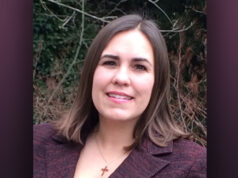Steve Waltar with Legacy Estate Planning joins Suzanne to talk about the particulars of choosing beneficiaries when planning for your estate.
Why should people create an estate plan? Steve explains, “I was in the hospital with someone with a bad cancer diagnosis yesterday. But all of us will eventually die. And if we own a home, or if we have children, the need to plan is high because without it it may go to the wrong people, or you may not protect your children. Or if you’re married, your spouse could remarry. I mean, [your estate] can implode, sometimes it’ll go to the right people, but not the right way…”
When it comes to choosing beneficiaries, he says, “Often we will list our spouse, like on an IRA or a 401(k). But then we don’t think about the kids. And it used to be, you could stretch IRAs over the life of a grandchild, and that stopped with the Secure Act. So there’s lots of changes, and people often don’t think of the backup beneficiaries, or they’ve really helped one kid through college and loans, and the other kid they haven’t. So do they want to kind of equalize things? That won’t happen if you don’t have your own planning in place… The first part is taking care of you, all your life. Even spouses can’t legally sign for one another, and they can’t make medical choices if someone’s in the hospital. So, maintaining control, protecting you while you’re alive, that’s a big deal. And of course, then the right people, or organizations, or grandchildren, or whatever, when you’re gone, that’s another big part of it.”
If someone’s never had an estate plan before, what do you think about? “Often, people ask, do I need a will or a trust? I’m like, ‘I don’t know yet.’ I need to know what people own. I need to know if they’re single or married, I need to know if they have minor children, if they have adult children, if they have any special needs children. And no two plans are exactly the same. So it’s a process. There’s a chance you could throw a dart and hit the right thing. What an attorney does is, they want to know the context, and once they know that, then we can say, ahh, this is a simple beneficiary designation, but this one better go to a will, or a trust, because you want to protect the beneficiary.”
How often should you review your estate plan? Steve says, “We have a rule of thumb: every five years. Our clients get to come in and kick the tires, and just see now if your agent has gone bad, the kids are going through a divorce… there may be reasons that you need to tell us before that. But I think five years is a good rule of thumb. Two years ago, they changed all the rules on health care powers of attorney [in the state of Washington]. I had someone in this week, they did wills 25 years ago. [Back then] they were naming guardians for their children. They have grandchildren now. So the laws [change], the estates are different. Sometimes an estate was a million and now it’s $3 million. Then you have to have estate tax protection, at least in our state of Washington. For federal laws, for wealthy clients, it’s the federal estate tax exemption, it’s going to cut in half in two years. The Hippa rule was nationwide and that blew up thousands, if not millions, of estate plans because you can’t give authorized consent when you’re in a coma, you have to give authorized consent when you have capacity.”
Learn more:
Legacy Estate Planning: https://www.waltar.com/
Steve Waltar: https://www.waltar.com/our-firm/about-our-firm/
Books: https://www.waltar.com/resources/books-published-by/
Webinars and seminars: https://www.waltar.com/seminars/
Hear more podcasts with Steve Waltar at Answers for Elders: https://answersforelders.com/tag/stephen-waltar/
Answers for Elders is part of the Senior Resource Network: https://www.seniorresource.com/
Check out our affiliate podcast Alzheimer’s Speaks: https://alzheimersspeaks.com/











